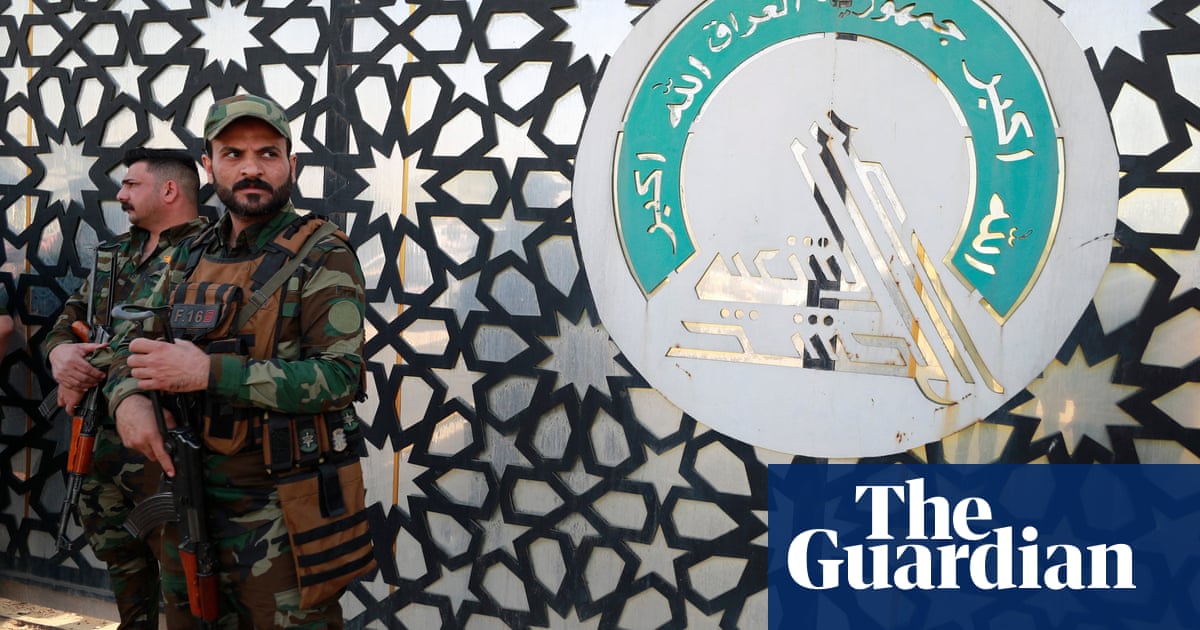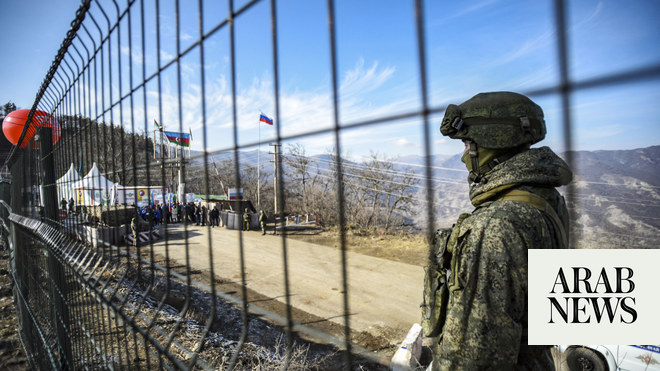
Soon after gaining their independence following the collapse of the Soviet Union, the Caucasian states — Azerbaijan, Armenia and Georgia — became of interest to both regional forces (Turkey and Iran) as well as international powers (Russia and the US).
With the establishment of these newly independent states, the Caucasus was transformed into one of the new regional security areas in the post-Soviet space. The stability of the region is a serious matter, and conflicts there inevitably affect all those with stakes in its energy supplies and security.
Tensions between Armenia and Azerbaijan boiled over again this month. In the 1990s, the neighbors went to war over the disputed territory of Nagorno-Karabakh. Since then there have been frequent reports of clashes over the territory, accompanied by harsh rhetoric from the leaders of both sides.
However, the timing and location of the most recent military confrontation has caught the attention of many. One of the worst armed clashes between the nations since 2016, it began on July 12 near the border in the Tovuz region of Azerbaijan. Major energy, rail and trade routes that link Azerbaijan, Georgia and Turkey, and connect Europe to Central Asia and China, pass through the area.
The region, which does not welcome any Russian or Iranian involvement, is highly significant for Turkey. It is central to the Baku-Tbilisi-Ceyhan oil pipeline and the Baku-Tbilisi-Kars railway, two major projects on which Turkey collaborates with Georgia and Azerbaijan. As you might expect, therefore, Ankara did not waste any time before reacting to the military clashes in the strongest terms.
Turkish President Recep Tayyip Erdogan, Foreign Minister Mevlut Cavusoglu and Defense Minister Hulusi Akar condemned the Armenian attacks, unsurprisingly siding with Azerbaijan. In addition, representatives of the Turkish political parties in the parliament signed a joint statement in which they denounced the actions of the Armenians, which they said affect Turkish national interests.
“Turkey will never hesitate to stand against any attack on the rights and lands of Azerbaijan,” Erdogan said on Tuesday, and suggested that there is a wider conspiracy at work. “This is not a border violation and conflict but a deliberate attack on Azerbaijan. Undoubtedly this attack shows Armenia is punching above its weight.”
There are domestic, regional and international dimensions to this latest conflict, which means that it affects a number of other nations, and so requires a deeper evaluation. To best understand the importance of the incident, it is important to consider its timing. Both Baku and Yerevan are facing economic challenges, most notably high unemployment, during the global pandemic.
While Azerbaijan has been severely affected by falling oil prices, Armenia is facing serious economic and social problems as a result of internal issues and the fact it is surrounded by neighbors who have mostly closed their borders. The latest clashes along the border with Azerbaijan have diverted the attention of the Armenian public away from the country’s worsening economic problems toward the long-standing military tensions.
In regional terms, it is important to consider the positions of Turkey and Iran. Tehran took the chance to exert its influence by offering to act as mediator. There is a large and highly influential Armenian community in Iran, and although Tehran walks a thin line in its relations with Armenia and Azerbaijan, it stands a step closer to the former.
On one side, therefore, we have Turkey, in a quasi-alliance with Ukraine, Azerbaijan and Georgia (and with the US and NATO waiting in the wings), while on the other we have Russia, Armenia and, to some extent, Iran.
As for the international dimension, Washington seeks collaboration with Azerbaijan in the Caucasus through NATO. This alarms Russia, which still considers the region as its backyard. Turkey, a partner with Russian and Iran in the Astana peace process for Syria, has nevertheless taken steps to reduce its reliance on both of those countries for energy. Baku represents a significant alternative option in Turkey’s search for alternative energy suppliers. This year Azerbaijan for the first time surpassed Russia in terms of gas supplies to Turkey.
The escalating conflict between Azerbaijan and Armenia could set the scene for a new Turkish-Russian rivalry.
Sinem Cengiz
A number of analysts suggest the escalating conflict between Azerbaijan and Armenia could set the scene for a new Turkish-Russian rivalry, which has already been hinted at in Syria and Libya. However, the tension in the Caucasus is just one of a number of elements influencing relations between Turkey and Russia. There is also, for example, the Russian nuclear-energy plant being built in Turkey, security agreements in Syria, Russian tourists who visit Turkey, Turkish construction exports to Russia — the list goes on.
Mutual dependency is the most important reality that defines Turkish and Russian — and even Iranian — perspectives on the large area stretching from Central Asia to North Africa. Geography, economics, the unsettled security situation throughout the Middle East, and an increasingly complicated international environment are the leading influences on the motives of Turkey, Russia and Iran, which are based primarily on realpolitik.
Sinem Cengiz is a Turkish political analyst who specializes in Turkey’s relations with the Middle East. Twitter: @SinemCngz
Disclaimer: Views expressed by writers in this section are their own and do not necessarily reflect Arab News" point-of-view












